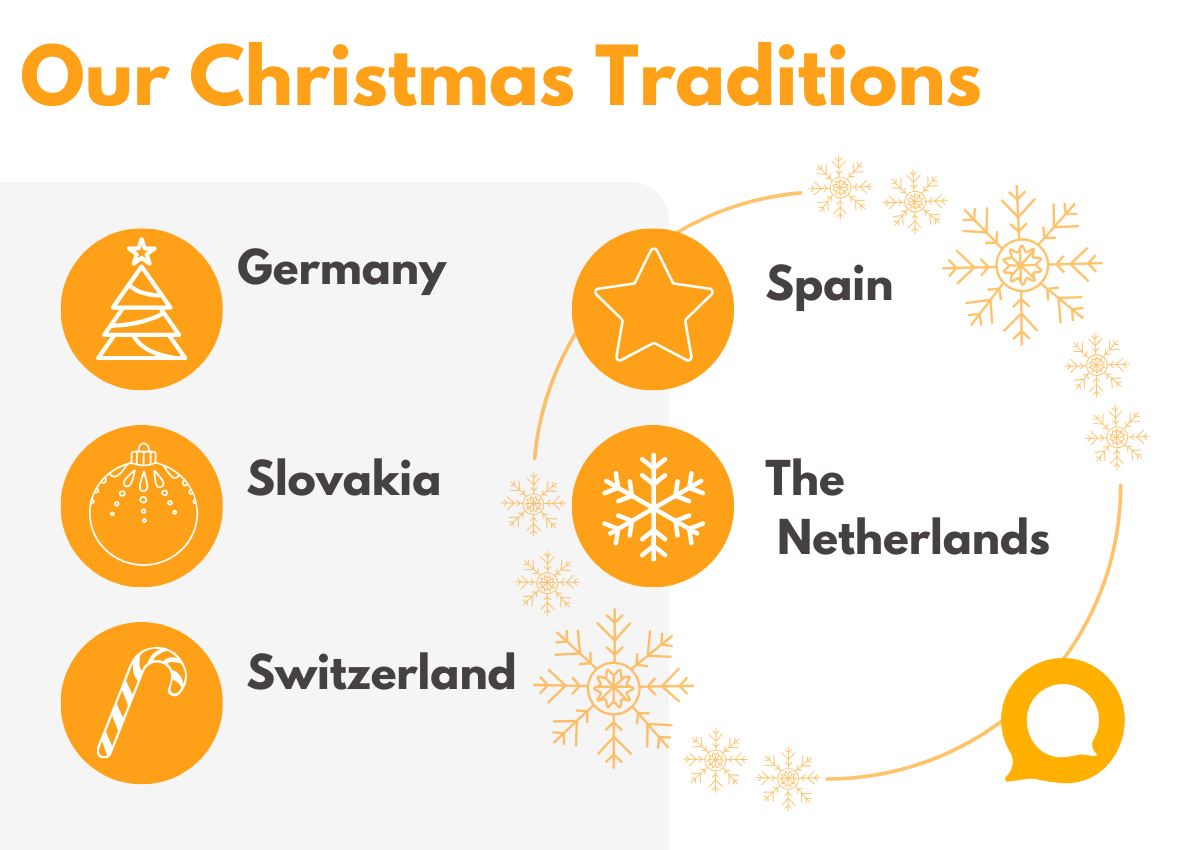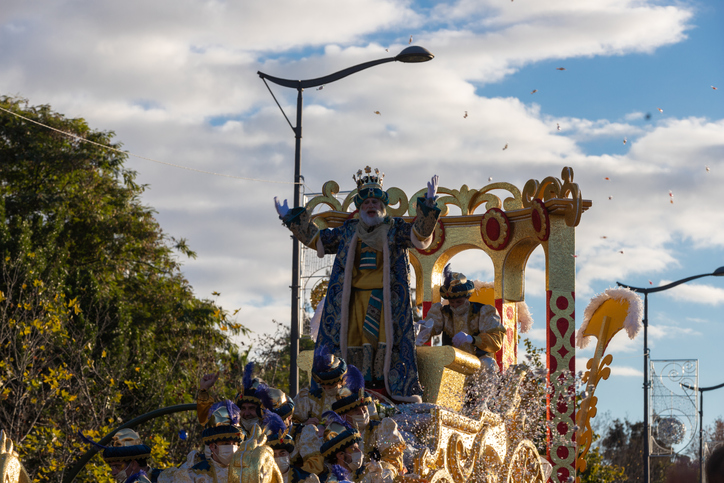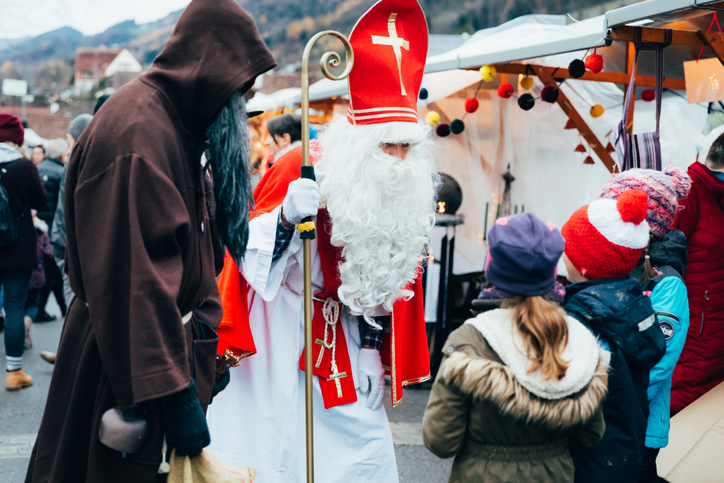Unwrapping the World: Christmas Memories and Traditions from Our Multinational Team

19 Dec 2023
Join us in celebrating the magic of the holiday season through the eyes of our international colleagues.
At Intonation, our strength lies in our diversity. Our multinational team brings together a wealth of experiences, perspectives, and traditions that enrich our company culture. As we approach the festive season, we find joy in sharing heart-warming memories of Christmases past and cherished traditions from our global team.
Ever wondered how different countries and cultures celebrate Christmas… whether Santa is the one who brings the presents, and what foods signal good luck? Our colleagues share their Christmas traditions with us.
Spain:
Our Spanish colleagues, Mireia and Irene, offer insights into their cherished Christmas customs.
Irene explains: “In Spain, instead of Santa Claus bringing the presents, Spanish children eagerly await the arrival of the Three Kings (or Three Wise Men) on the 6th of January. The day before their arrival, the highlight of Spanish Christmas, is a spectacular parade where the 3 Kings throw sweets to the children, filling the streets with excitement”.

Mireia shares: “We enjoy a New Year’s Eve dinner with family and the tradition of eating 12 grapes at midnight to enter the New Year. Each grape symbolises a month in the coming year to bring good luck. It’s a funny moment as not everyone manages to finish with the twelfth bell and people tend to end up with a mouth full of grapes and struggle to say, ‘Happy New Year’!”.

Slovakia:
Ester and Tatiana, hailing from Slovakia, paint a vivid picture of their Christmas traditions. “St. Nicholas Day on December 6th stands out, with candy placed in children’s shoes overnight, a reward for good behaviour. Christmas, celebrated on the 24th of December involves preparing meals, baking and enjoying festive songs”.
Tatiana elaborates, “Families often fast throughout the day with the humorous hope of spotting a golden pig. We crack 4 walnuts to symbolise the seasons and the promise of a healthy year. The feast includes sauerkraut soup, fish, and potato salad. Afterward, presents are exchanged, and families engage in heartwarming conversations, games or Christmas movies”.
Switzerland:
Anu, our Project Manager from Switzerland shares her traditions: “We have the “Samichlaus” (Saint Nick) who resembles Father Christmas and visits on the 6th of December. The idea is that he assesses children’s behaviour throughout the year and rewards them with a jute bag filled with treats.

The Samichlaus is also accompanied by one or two “Schmutzlis”, who are unkempt figures in black cloaks, supposed to scare the “bad kids”. Children are always a little scared of the Schmutzlis because he sometimes scolds the children (you should have been nicer to your siblings, you should have helped your mom more, etc.).
It’s not Father Christmas that brings the gifts, it’s the “Christkind” or “Christkindli” (baby Jesus). Parents put the presents under the Christmas tree during the evening and ring a small bell to signify that Christkind has visited. Children run into the living room and are amazed to see all the gifts under the tree!”.
Germany:
Shirin shares that “festivities begin on the 6th of December. St. Nicholas, who is (among other things) patron saint of children, often gifted small gifts to children during his lifetime. He is celebrated on the 6th of December. Children polish their boots and leave them in front of their doors or windowsills to be filled with small gifts, chocolate and fruit, such as apples and tangerines. The eve of the 24th is when we celebrate Christmas, with a feast of goose, turkey or venison accompanied by boiled potatoes or traditional “Kartoffelknödel”.
The Netherlands:
Simone, our proofreader, reflects on Dutch traditions, where St. Nicholas’ Eve (5th of December) is an important celebration. “That was the day when we would exchange presents etc., have ‘pepernoten’ and ‘speculaas’ and little ones would put their shoe in front of the fireplace in the evening, and sing a traditional St. Nicholas song, and would wake to find small gifts or sweets in their shoe. We leave carrots for St. Nicholas’ horse, but I don’t recall leaving anything for St. Nicholas himself. We then celebrate Christmas on the 25th of December and dinner can be whatever people fancy”.
At Intonation, we cherish the richness that diversity brings and the opportunity to share cultural traditions that make us stronger and more inclusive. This holiday season, we invite you to explore the rich tapestry of Christmas memories and traditions from our team. May these stories inspire us all to appreciate the global spirit of togetherness and unity that makes this season truly magical.
Warmest wishes for a joyful and inclusive holiday season from all of us at Intonation!
